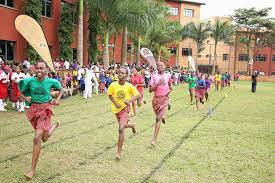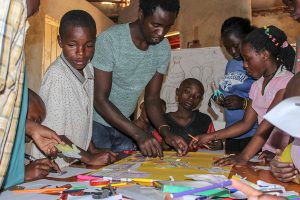Education is as old as man’s civilization itself. Education as we know it is always evolving; the pursuit of high-quality learning experiences is of keen interest to each generation. I embarked on a journey to secure the best education for my children as far back as 2015. I enrolled my first-born son in a promising Kampala-based school in Uganda. Amidst serene environments, dedicated teachers, and a vibrant student community, the prospect of a rewarding educational experience seemed within reach. This very nurturing environment kindled my son’s passion for music and reading, prompting him to express his ambitions of joining the school’s music and reading clubs. Regrettably, our hopes and expectations were both cut short, the reasons for which are the gist of my reflections in this article.
Upon my son exhibiting an interest in joining the music and reading clubs, we were taken through the benefits and the requirements. I shortly received a circular detailing exorbitant costs tied to extracurricular involvement. The figures were shocking—100,000 UGX per term for just the music club, an equivalent sum for the reading club, and similarly steep fees for various other pursuits. This commodification of what I regard as essential educational supplements underscores a vital debate on nurturing talent and holistic development among students.
Comparing my educational journey through Mbarara Municipal Primary School, a glaring contrast emerges. Those formative years were graced by vibrant participation in a mix of clubs, moulding not only aptitudes but also cultivating self-assuredness and spirited competitiveness. All these activities were considered part of the comprehensive school educational program. These endeavours acted as gateways to various life skills that are still of great benefit to my adult life. The contrasting reality my son faces, marred by prohibitive costs, sharply contradicts the inclusiveness and holistic approach that our education system should have.
This contradiction can’t be limited to the latest thinking that “things have changed!” What things if I may ask? Better yet, I would rather we confront critical queries: How did talent nurturing devolve into a financial commodity? How can we anticipate students to unearth their potential when financial barriers curtail engagement in enriching extracurricular pursuits? I have met many parents who are navigating this maze of furnishing quality education amidst financial constraints. Many are crashing under the weight of this burden. It signals the Ugandan Ministry of Education and Sports to intervene, ensuring that the imminent threat of financial burdens doesn’t undermine our aspirations for comprehensive child development.
Enter the contentious subject of school trips. Without doubt, a good number of school trips are beneficial and necessary for the students. They allow the students to venture out of the routine school confines while providing adventurous learning experiences. While there is no denying the advantages of adventure, school administration needs to do more when organizing field trips. Transparent communication ahead of time allows parents to plan ahead so that their children don’t miss out. The phenomenon of trips emerging as a revenue stream for some school proprietors should be looked into and the allegations ascertained. Field trips ought to be vehicles of experiential learning rather than financial gains.
The Ugandan educational landscape demands recalibration. And I am glad the relevant stakeholders have taken the right steps in the right direction. We are at the implementation stage of the new education curriculum. I believe this will be a process that takes time and evaluation to be able to arrive at an effective education system that works for our country. It indicates a paradigm shift, with education authorities ensuring equitable access to holistic growth opportunities, including nurturing the talents of the young generation. Collectively, as parents, educators, and policymakers, we possess the agency to rekindle the spirit of inclusive, talent-driven education, thereby igniting brighter futures for Uganda’s youth.


